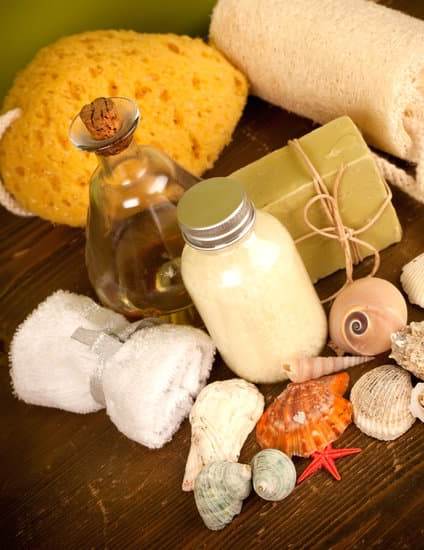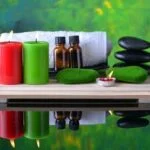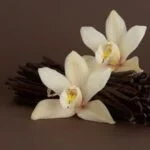
Aromatherapy has become increasingly popular in recent years as a natural and holistic approach to skin care. This introductory section of the article will provide an overview of the concept of aromatherapy and its relevance in skin care, as well as define the benefits and potential drawbacks of using aromatherapy for skin health.
Aromatherapy is the practice of using aromatic compounds, typically derived from plants, to promote physical and psychological well-being. When applied to the topic of skin care, aromatherapy involves harnessing the power of essential oils and other aromatic substances to improve the overall health and appearance of the skin. These oils can be used in various forms such as serums, moisturizers, masks, or added to baths for a luxurious experience.
One of the primary benefits of incorporating aromatherapy into your skincare routine is that it offers a natural alternative to conventional skincare products that may contain harsh chemicals. Essential oils are known for their potent properties that can address specific skin concerns such as acne, dryness, aging signs, or inflammation.
However, it’s important to recognize that there can be potential drawbacks when using essential oils on the skin. Some individuals may have sensitivities or allergies to certain oils, while others may experience irritation if not properly diluted or used in excessive amounts.
As we delve deeper into this article, we will explore both the scientific aspects and practical applications of aromatherapy for optimal skin care. By understanding how aromatic compounds interact with our skin on a molecular level and learning about specific essential oils suitable for different skin concerns, you will be equipped with valuable knowledge to enhance your own skincare routine through DIY recipes or seek professional treatments tailored towards your needs.
Let’s embark on this aromatic journey towards healthier and more radiant skin.
The Science Behind Aromatherapy
Aromatherapy is not just about enjoying pleasant scents; there is actually science behind how it works on the skin. Aromatic compounds, found in essential oils, have unique chemical properties that can interact with the skin and provide various benefits. When these compounds are inhaled or applied topically, they can enter the body and produce therapeutic effects.
One of the main ways aromatherapy works is through the olfactory system. When we inhale essential oils, the molecules travel to the olfactory receptors in our nose. These receptors send signals to the limbic system, which is the part of our brain responsible for emotions, memories, and behavior. This is why certain scents can evoke strong emotional responses or trigger memories.
In addition to affecting our emotions and mood, aromatic compounds in essential oils can also have direct effects on our skin. For example, some essential oils have antibacterial or antifungal properties that can help fight off acne-causing bacteria or yeast infections on the skin. Other essential oils have anti-inflammatory properties that can calm irritated or inflamed skin. The specific benefits of each essential oil will depend on its unique composition and chemical constituents.
It’s important to note that while aromatherapy can be beneficial for skin care, it’s also important to consider potential risks and drawbacks. Some people may be allergic or sensitive to certain essential oils, so it’s always recommended to do a patch test before using a new product. Additionally, some essential oils may cause photosensitivity and make your skin more prone to sunburns if used improperly.
Essential Oils for Common Skin Concerns
When it comes to addressing specific skin concerns, essential oils can be valuable tools in your skincare routine. With their unique properties and therapeutic benefits, certain essential oils can effectively target common skin issues. Here are a few examples of essential oils and how they can benefit various skin concerns:
A) Acne-Prone Skin
- Tea Tree Oil: Known for its antimicrobial properties, tea tree oil can help combat acne-causing bacteria on the skin. It also has anti-inflammatory effects, reducing redness and swelling associated with acne breakouts.
- Lavender Oil: Not only is lavender oil calming and soothing, but it also possesses antibacterial properties that may help prevent and reduce acne. Its gentle nature makes it suitable for sensitive or irritated skin.
B) Aging Skin
- Rosehip Oil: Rich in antioxidants and essential fatty acids, rosehip oil helps promote collagen production and improve skin elasticity. It can diminish the appearance of wrinkles, fine lines, and age spots.
- Frankincense Oil: This powerful oil stimulates cell regeneration, supporting the natural healing process of the skin. It may reduce the appearance of fine lines and wrinkles while promoting a more youthful complexion.
C) Dry Skin
- Jojoba Oil: Similar to human sebum, jojoba oil closely mimics the skin’s natural oils, making it an excellent moisturizer for dry skin. It absorbs quickly without leaving a greasy residue.
- Chamomile Oil: With its anti-inflammatory properties, chamomile oil soothes dry or irritated skin while improving hydration levels. It also calms redness and promotes overall skin health.
To incorporate these essential oils into your skincare routine, you can create your own custom blends or look for skincare products that harness their benefits. Remember to always dilute essential oils properly and perform a patch test before applying them to your face. Consult with a dermatologist if you have any underlying skin conditions or concerns.
Now that you are familiar with some essential oils and their benefits for common skin concerns, let’s explore how to create your own aromatherapy skincare products with easy-to-follow recipes in the next section.
DIY Aromatherapy Recipes for Skin Care
Aromatherapy offers a natural and holistic approach to skincare, harnessing the power of essential oils to address various skin concerns. Many people are interested in creating their own aromatherapy skincare products at home, as it allows them to personalize their routines and avoid potentially harmful ingredients found in commercial products. In this section, we will present some easy-to-follow DIY aromatherapy recipes for different skincare needs.
One popular recipe is a homemade facial oil for hydration and nourishment. To create this product, you will need a carrier oil like jojoba or rosehip oil, along with essential oils that are beneficial for the skin, such as lavender and frankincense.
Simply mix a few drops of the essential oils into your chosen carrier oil and apply it to your face after cleansing. This facial oil can provide deep moisturization and help improve the appearance of fine lines and wrinkles.
Another DIY recipe is a refreshing toner for oily or acne-prone skin. You can make this by combining witch hazel with tea tree essential oil and peppermint essential oil. Witch hazel acts as a natural astringent, while tea tree oil has antimicrobial properties that can help combat acne-causing bacteria. Peppermint oil adds a cooling sensation to soothe irritated skin. Apply this toner after cleansing to remove any remaining impurities and balance the skin’s pH levels.
For those looking for an exfoliating mask, you can create one using bentonite clay and rosemary essential oil. Bentonite clay helps draw out impurities from the skin, while rosemary oil has antioxidant properties that can promote a brighter complexion. Mix these ingredients with water or another suitable liquid until you have a thick paste consistency. Apply the mask to your face and leave it on for about 10-15 minutes before rinsing it off with warm water.
These DIY aromatherapy recipes provide accessible options for incorporating natural skincare into your routine. However, it is essential to do thorough research and be aware of any potential allergies or sensitivities before using essential oils. It is also crucial to follow proper dilution guidelines and test the products on a small patch of skin before applying them to your entire face.
Best Practices for Incorporating Aromatherapy into Your Skincare Routine
Proper Integration
When incorporating aromatherapy into your skincare routine, it is important to integrate it properly to maximize its benefits. One way to do this is by starting slowly and gradually introducing essential oils into your routine. Begin by using a small amount of essential oil in a carrier oil or adding a few drops to your existing skincare products. This allows your skin to adjust and reduces the risk of any adverse reactions or sensitivities.
Dosage and Frequency
Dosage and frequency are crucial considerations when incorporating aromatherapy into your skincare routine. As a general guideline, it is recommended to use a maximum of three essential oils at a time. This helps avoid overwhelming your skin and allows you to observe how your skin reacts to each oil.
In terms of frequency, start with using aromatherapy products every other day or a few times per week and monitor how your skin responds. Some individuals may find that daily use of aromatherapy products works well for their skin, while others may need less frequent application.
Potential Side Effects
While aromatherapy can have many benefits for the skin, it is important to be aware of potential side effects. Always perform a patch test before applying any new essential oil directly on your face or body.
This involves applying a small amount of diluted essential oil onto a small area of skin, such as the inner forearm, and waiting 24-48 hours to check for any adverse reactions like redness, itching, or irritation. Additionally, certain essential oils may increase sensitivity to sunlight, so be cautious when using them during daytime hours and always wear sunscreen.
By following these best practices for incorporating aromatherapy into your skincare routine, you can ensure that you are utilizing its benefits effectively while minimizing potential risks. Experiment with different essential oils and find the ones that work best for your specific skin concerns. Remember, everyone’s skin is unique, so what works for one person may not work for another. Listen to your skin and adjust your routine accordingly for optimal results.
Safety Precautions and Potential Risks
Aromatherapy has gained popularity in the skincare industry due to its numerous benefits, but it is essential to use these products safely and be aware of potential risks. When using essential oils for skincare, it is crucial to take certain precautions to ensure maximum safety and minimize any potential adverse reactions.
One of the most important considerations when using aromatherapy for skin care is proper dilution. Essential oils are highly concentrated and can cause skin irritation or allergic reactions if applied undiluted. It is recommended to dilute essential oils with a carrier oil like jojoba, coconut, or almond oil before applying them topically.
The general guideline for dilution is 2-3 drops of essential oil per teaspoon of carrier oil. This ratio can vary depending on the specific essential oil and individual sensitivity levels.
It is also important to do a patch test before using any new essential oil on your skin. Apply a small amount of diluted essential oil to a small area of skin and monitor for any adverse reactions such as redness, itching, or swelling. If you experience any discomfort or irritation, discontinue use immediately.
In addition to proper dilution and patch testing, understanding potential allergies or sensitivities is crucial when incorporating aromatherapy into your skincare routine. Some individuals may have particular sensitivities to certain essential oils, even when properly diluted. Common allergenic essential oils include lavender, citrus oils (such as lemon and bergamot), peppermint, and tea tree oil. If you have known allergies or sensitivities to any specific essential oils, avoid using them in your skincare products.
By following these safety precautions and being mindful of potential risks associated with aromatherapy, you can enjoy the benefits of this natural skincare approach without compromising your skin’s health.
Aromatherapy Techniques for Relaxation and Stress Relief
Aromatherapy is not only beneficial for the skin, but it also has a profound impact on mental well-being. The use of aromatic compounds in skincare products can provide a calming and soothing effect, promoting relaxation and stress relief. Here are some aromatherapy techniques that you can incorporate into your skincare routine to enhance your overall well-being.
Aromatherapy Massage
One popular technique is aromatherapy massage, which combines the benefits of touch therapy with the power of essential oils. During an aromatherapy massage, a therapist will use gentle strokes and kneading techniques while incorporating essential oils specifically chosen for their relaxation properties. The aroma of these oils stimulates the olfactory system, which connects directly to the brain’s limbic system – the area responsible for emotions and memories. This can trigger feelings of relaxation and reduce stress levels.
You can also try giving yourself an at-home aromatherapy massage. Simply dilute a few drops of your favorite essential oil in a carrier oil such as jojoba or sweet almond oil, warm it slightly, and gently massage it into your skin using circular motions. This not only helps to relieve tension in muscles but also provides a moment of tranquility amidst a hectic day.
Aromatherapy Bath Rituals
Another effective way to utilize aromatherapy for relaxation and stress relief is through bath rituals. Add several drops of your preferred essential oil to warm bathwater and allow the steam from the water to disperse the aroma throughout the room. Lavender, chamomile, and ylang-ylang are popular choices known for their calming effects. As you soak in the scented water, take deep breaths and let go of any tension or worries.
For an added touch of luxury, consider creating DIY bath blends by mixing essential oils with Epsom salts or carrier oils. This combination not only enhances the aroma but also provides nourishment to your skin, leaving it hydrated and soft after your bath.
Aromatherapy Inhalation
In addition to massage and bath rituals, aromatherapy inhalation is another convenient technique for relaxation and stress relief. Directly inhaling essential oils can have an immediate impact on your mood and emotions.
You can place a few drops of an essential oil such as bergamot or jasmine onto a tissue or cotton ball and breathe in deeply whenever you need a moment of calmness. Another option is using a diffuser to disperse the scent of essential oils throughout your living space, creating a serene environment that promotes relaxation.
By incorporating these aromatherapy techniques into your skincare routine, you can experience not only the tangible benefits for your skin but also the intangible benefits for your mental well-being. The power of scent is remarkable, and by harnessing it through aromatherapy, you can enhance both your skincare regimen and overall quality of life.
Professional Aromatherapy Treatments for Skin Care
Aromatherapy is not just limited to self-care routines at home; it has also gained popularity as a professional treatment for various skin conditions. Professional aromatherapists are skilled in using essential oils and their therapeutic properties to address specific skin concerns. These treatments can provide deep nourishment, hydration, and rejuvenation for the skin while offering a luxurious and relaxing experience.
One popular professional aromatherapy treatment for the skin is the aromatherapy facial. This facial involves the use of carefully selected essential oils that are chosen based on an individual’s unique skin type and needs. The therapist may perform a gentle cleanse and exfoliation to prepare the skin, followed by a steam treatment to open up the pores.
Then, they will apply a customized blend of essential oils onto the face through gentle massage techniques. These oils not only provide hydration but also penetrate deeper into the layers of the skin, delivering their beneficial properties.
Another sought-after professional aromatherapy treatment is the aromatherapy body scrub. This treatment helps to exfoliate dead skin cells, stimulate blood circulation, and promote overall detoxification of the body. The therapist will mix coarse salt or sugar with essential oils to create a scrub that is specifically tailored to meet an individual’s skincare needs.
During this treatment, the therapist will gently massage the scrub onto the body, paying special attention to areas prone to dryness or roughness. The combination of exfoliation and aromatherapy can leave the skin feeling incredibly soft, smooth, and revitalized.
Professional aromatherapy treatments offer a unique way to experience aromatherapy while receiving expert guidance from trained practitioners. Whether you’re looking for targeted solutions for specific skin concerns or simply want to indulge in a pampering experience, these treatments can provide transformative results for your skin health and overall well-being.
Conclusion
In conclusion, aromatherapy can be a valuable addition to your skincare routine. The use of essential oils and aromatic compounds has been shown to have numerous benefits for the skin, addressing various concerns such as acne, aging, dryness, and more. By understanding the science behind aromatherapy and its impact on the skin, you can make informed choices when selecting essential oils for your specific needs.
DIY aromatherapy recipes provide an accessible way to incorporate this practice into your daily skincare regimen. With step-by-step instructions and easily attainable ingredients, you can create your own facial oils, serums, toners, and masks tailored to your unique skin concerns. This allows you to have full control over what goes onto your skin while enjoying the therapeutic effects of these natural ingredients.
However, it is crucial to follow safety precautions when using essential oils for skincare. Proper dilution is essential to prevent irritation or allergic reactions. Additionally, it is important to note that everyone’s skin reacts differently to different essential oils, so it is recommended to perform patch tests before applying them all over the face or body.
Frequently Asked Questions
Is aromatherapy good for skin?
Aromatherapy can offer benefits for the skin, although its effectiveness may vary depending on individual factors and specific conditions. Essential oils used in aromatherapy are often diluted and infused into carrier oils or incorporated into skincare products. These oils possess various properties that can have positive effects on the skin.
For example, tea tree oil has antimicrobial properties that can help combat acne-causing bacteria, while lavender oil is known for its soothing and calming effects on sensitive or irritated skin. However, it is important to note that aromatherapy should not replace professional medical advice or treatments for serious skin issues.
What aromatherapy oils are good for skin?
There is a wide range of aromatherapy oils that are believed to be beneficial for the skin due to their various properties and potential healing effects. Some commonly used essential oils for skincare include lavender, tea tree, chamomile, rosehip seed, frankincense, geranium, and sandalwood oil. Lavender oil is renowned for its calming and anti-inflammatory properties, making it suitable for sensitive or irritated skin.
Tea tree oil has antibacterial and antifungal properties that may help target acne or skin infections. Chamomile oil possesses soothing properties that can alleviate redness and inflammation in the skin. Rosehip seed oil contains high levels of vitamin C and fatty acids which are believed to promote healthy-looking skin and reduce signs of aging.
What is aromatherapy for skin?
Aromatherapy for the skin refers to the use of essential oils derived from plants as a holistic approach to skincare. These essential oils contain concentrated plant compounds that are thought to possess various healing properties when properly applied to the skin.
When diluted with carrier oils or incorporated into skincare products such as lotions or serums, these essential oils are believed to provide benefits like hydration, antioxidant protection, soothing inflamed or irritated areas, improving circulation, promoting a clearer complexion, increasing collagen production, reducing signs of aging, and more. The practice of aromatherapy for the skin combines the therapeutic effects of essential oils with the act of self-care, creating a relaxing and enjoyable skincare routine.




